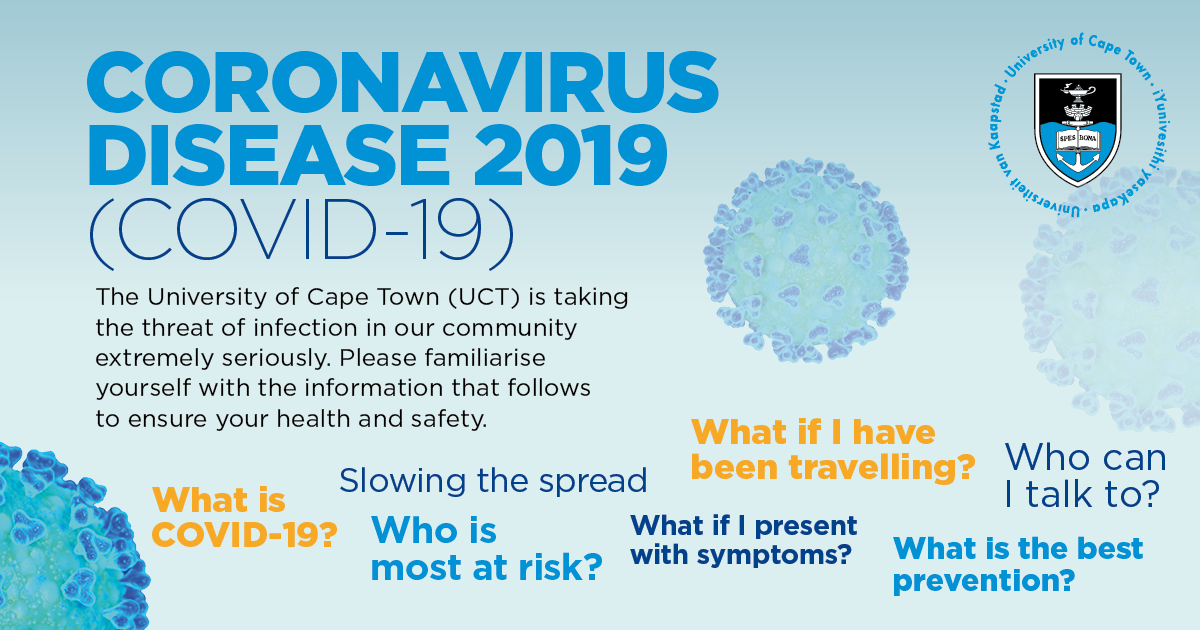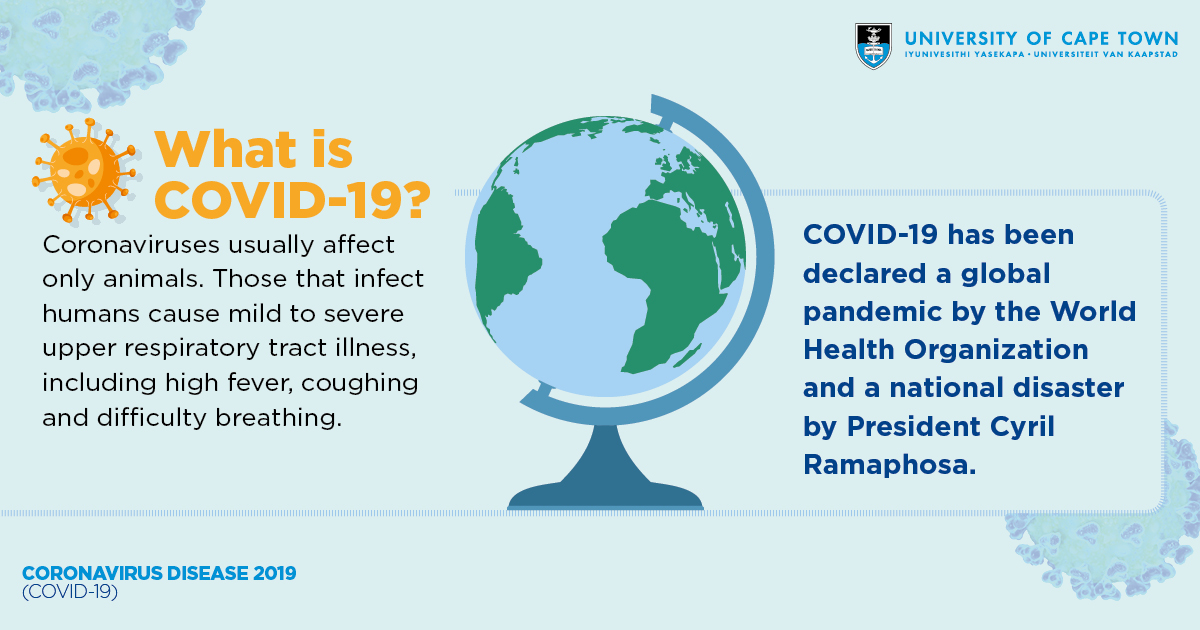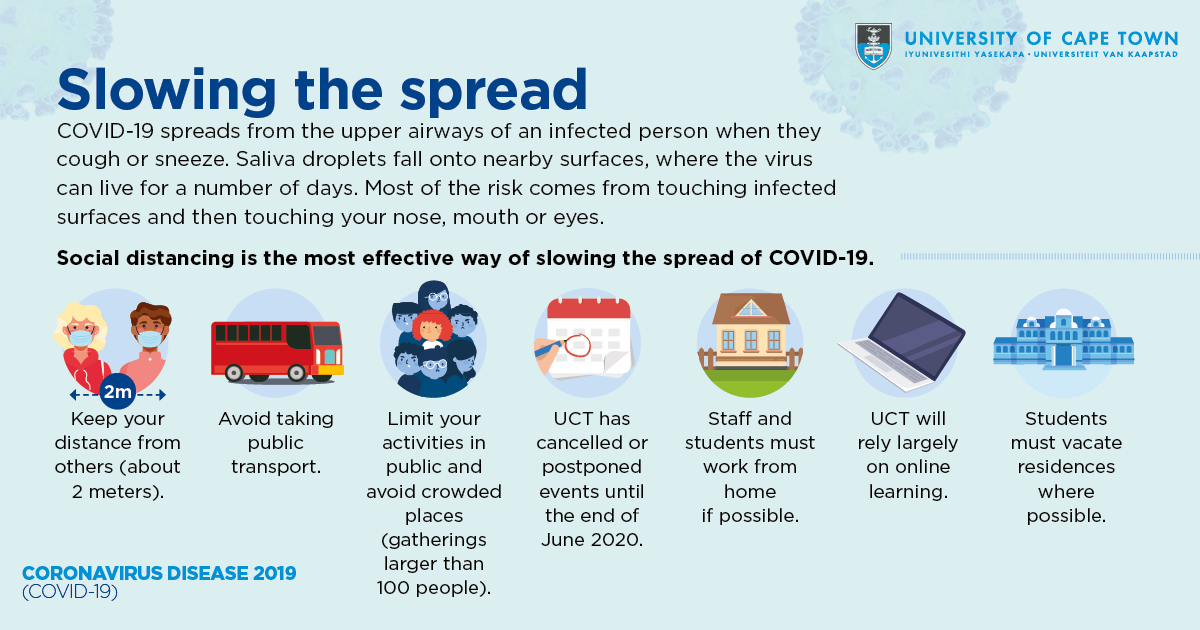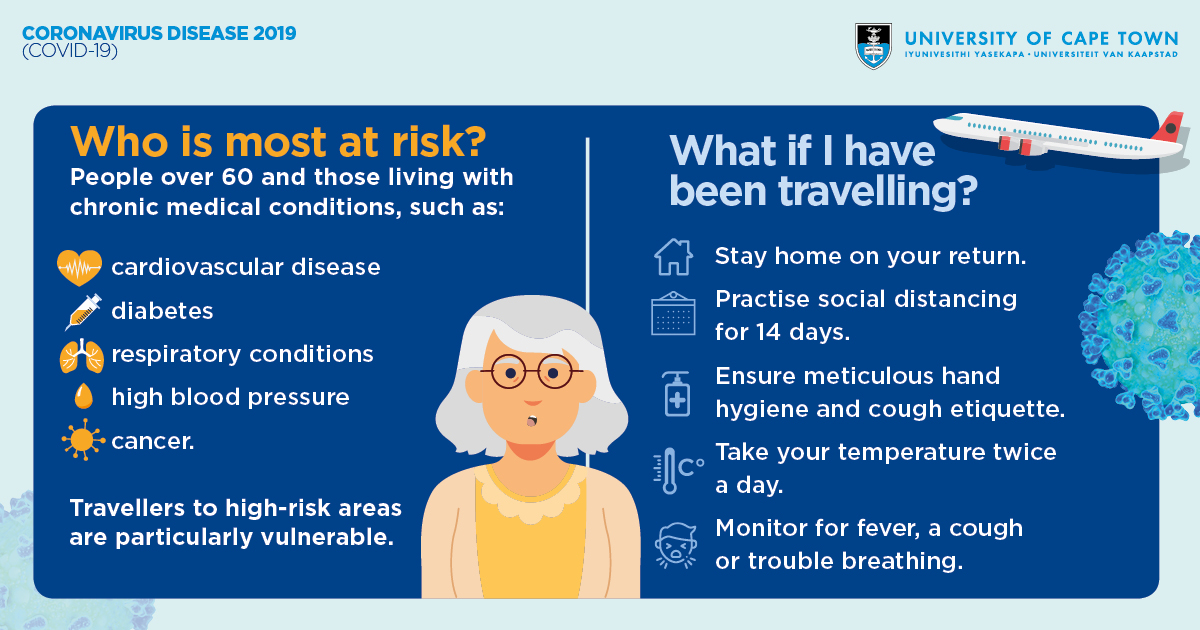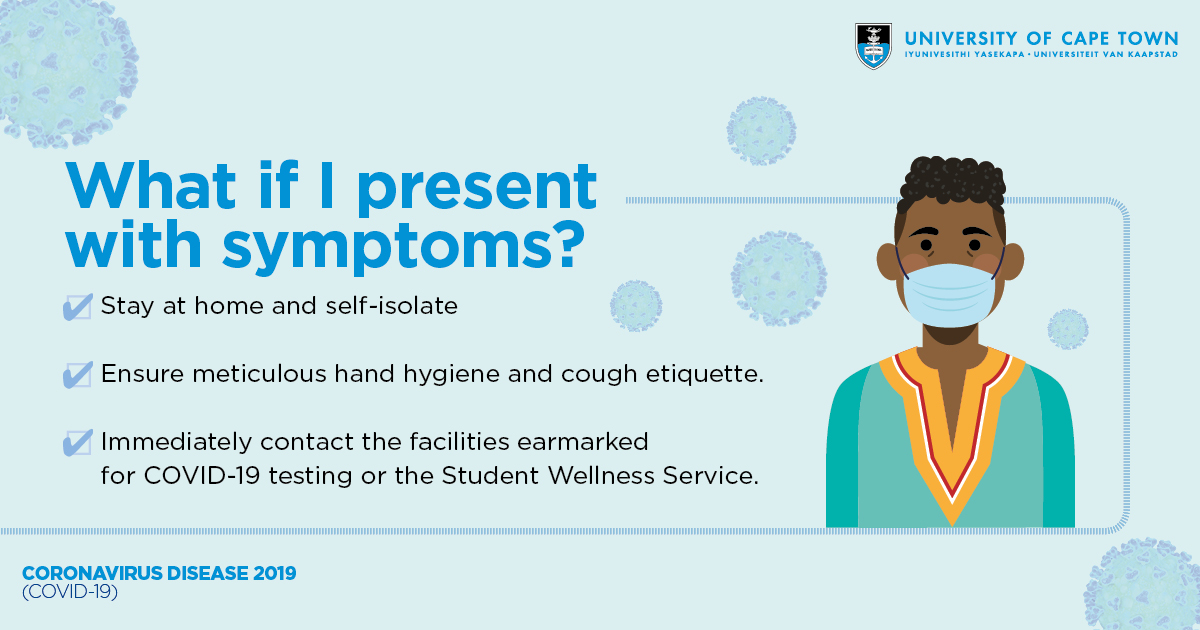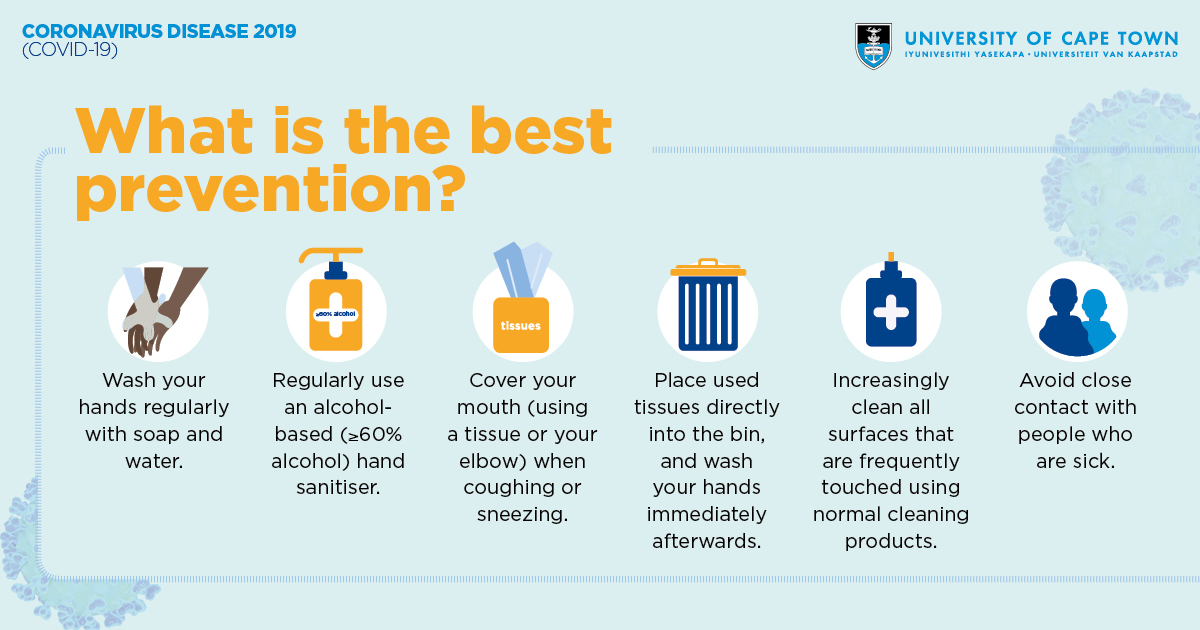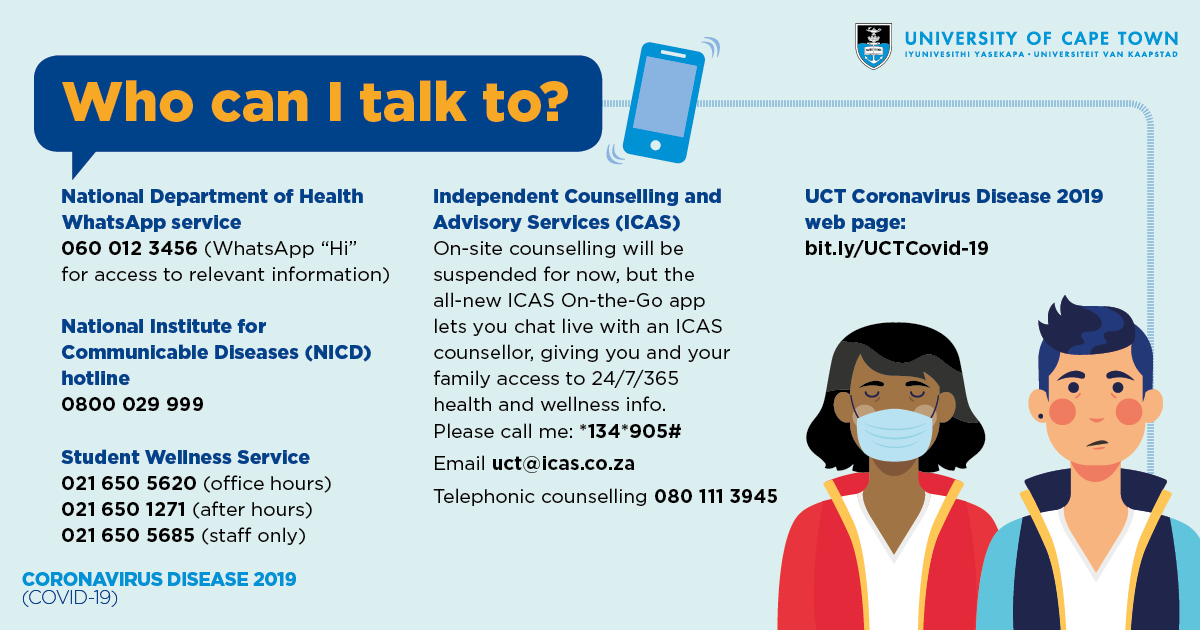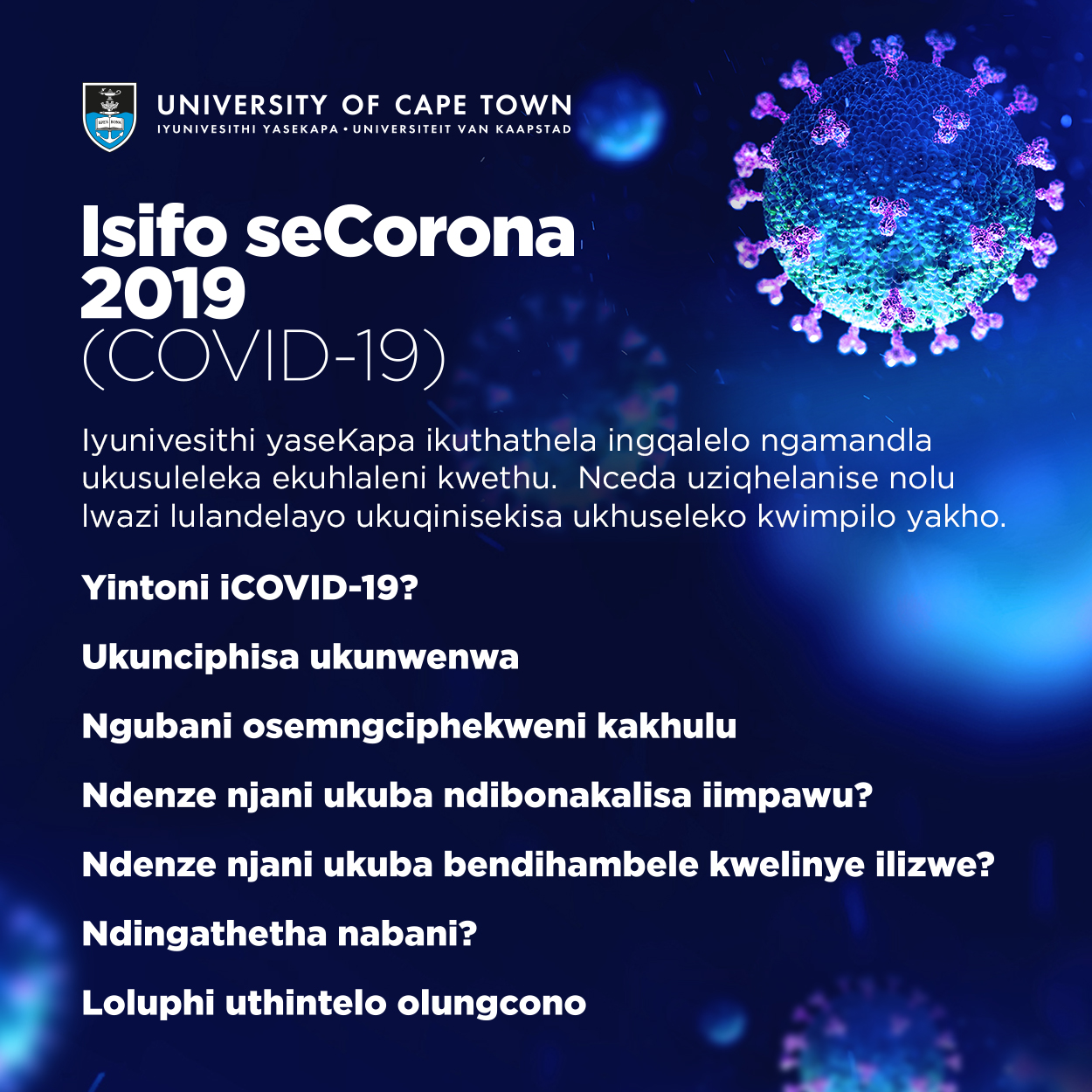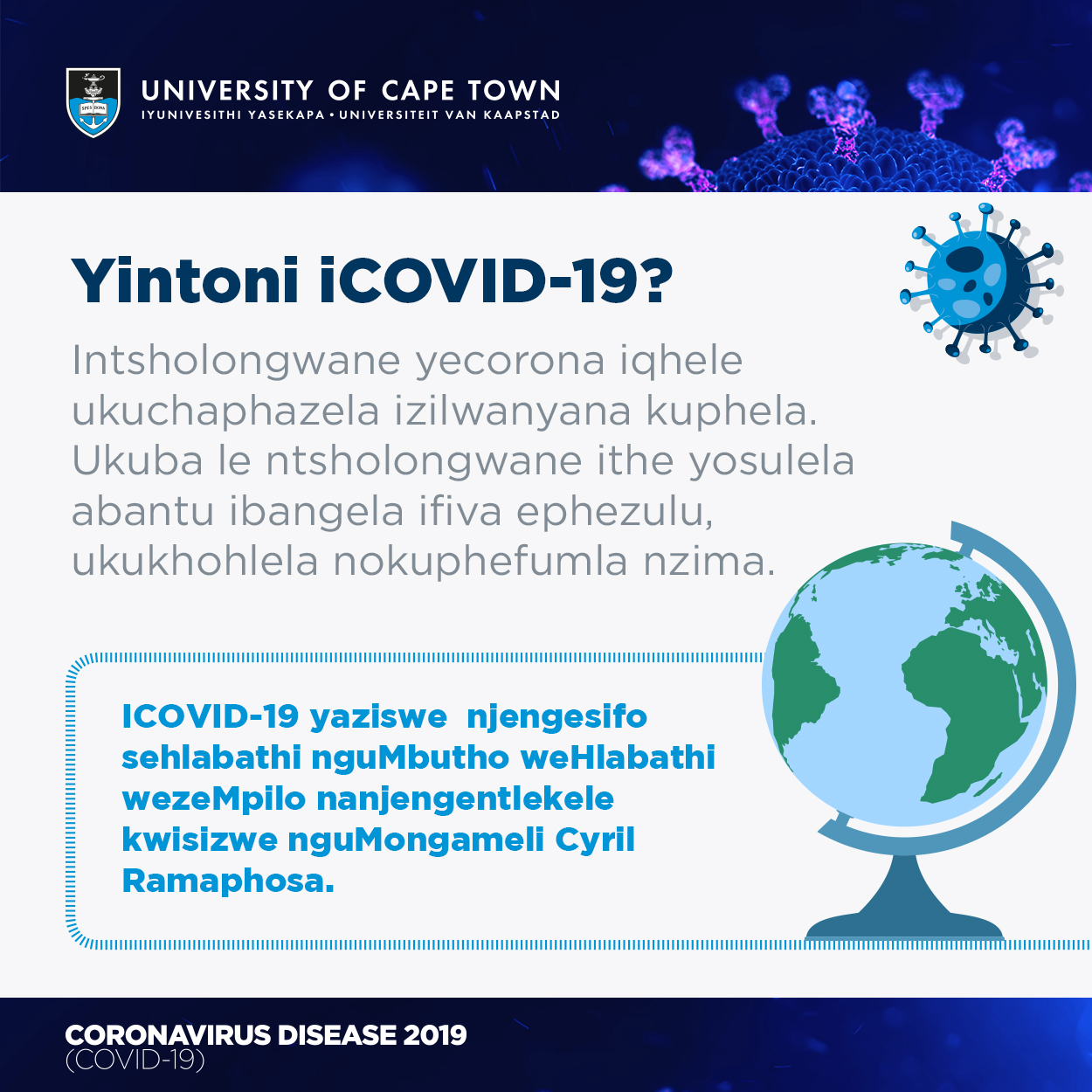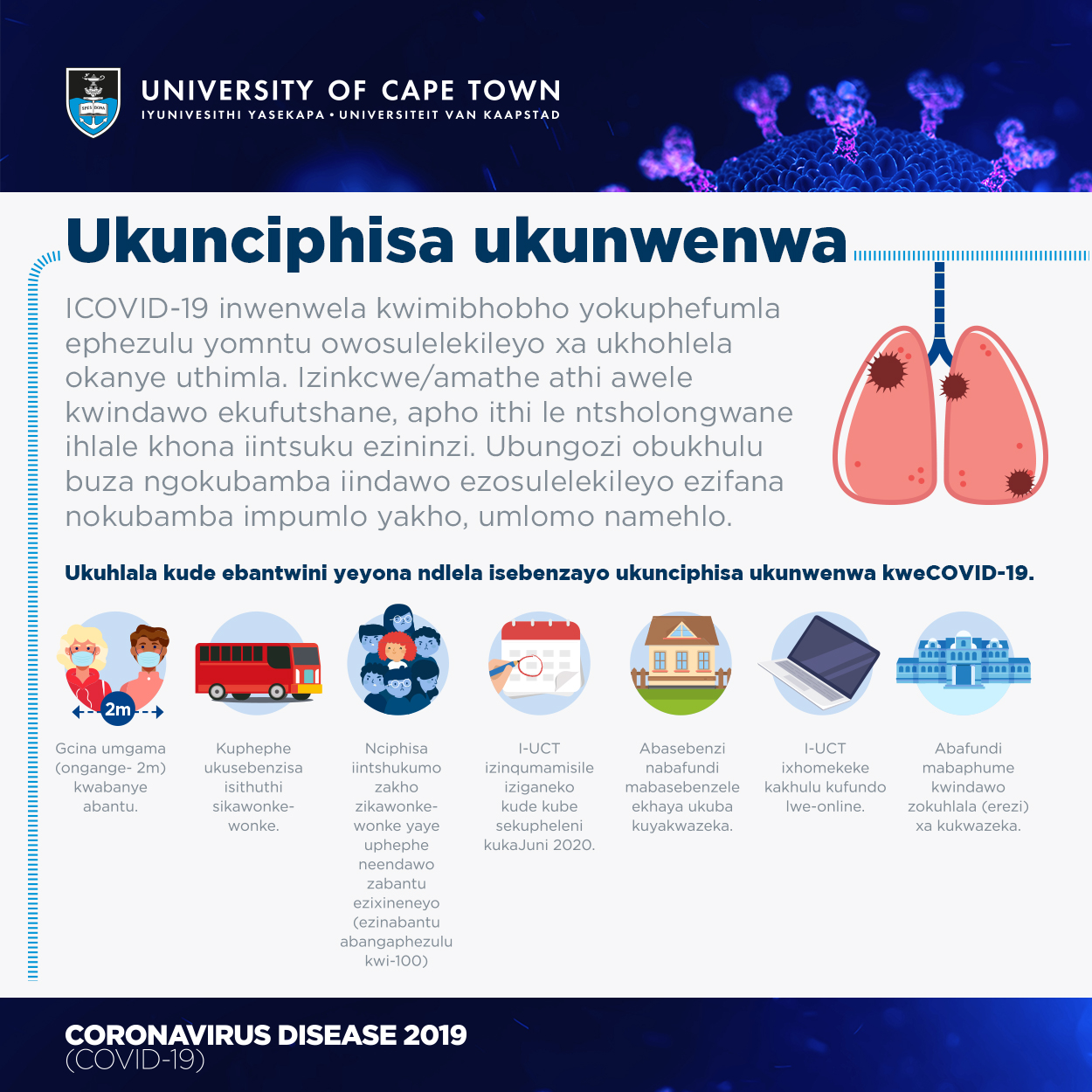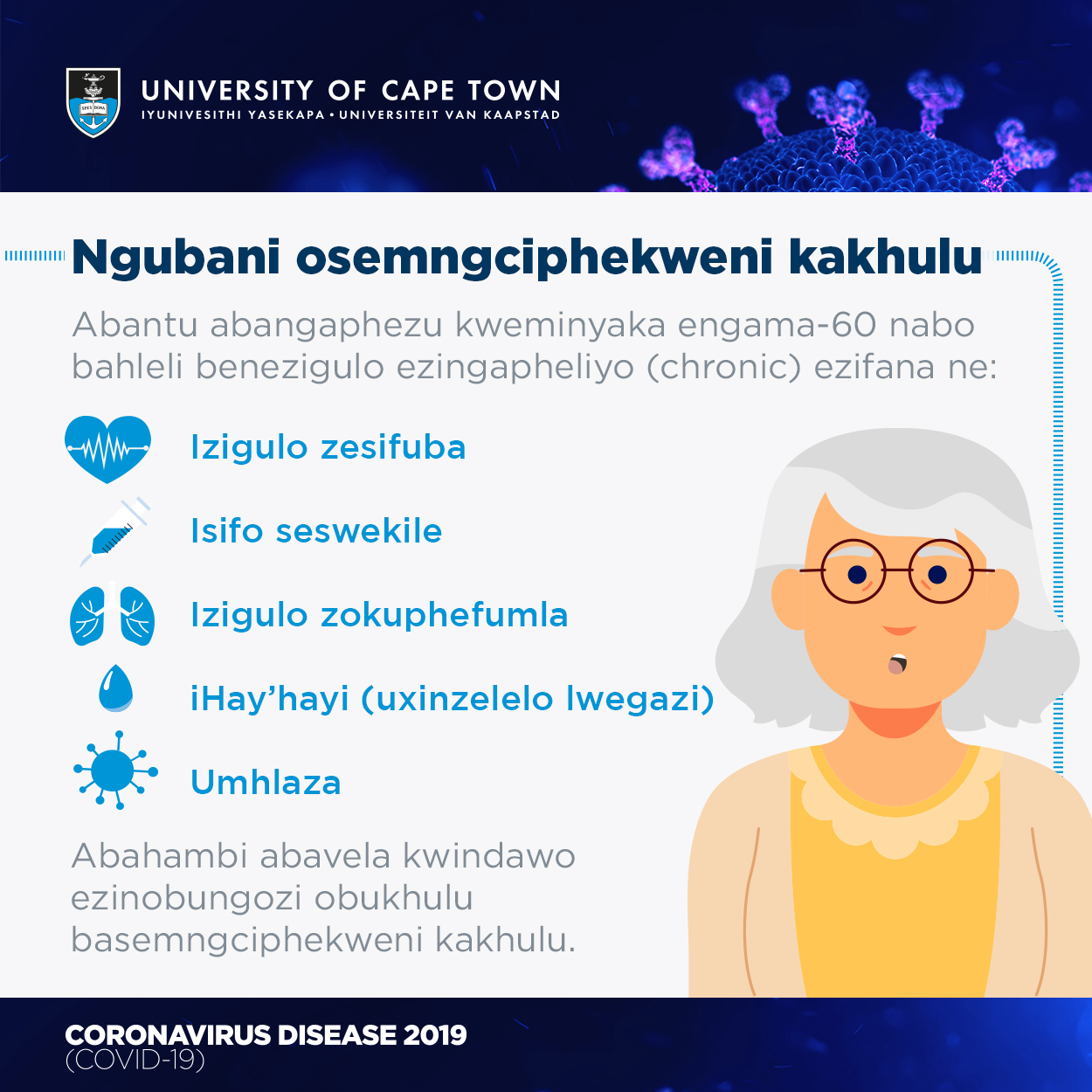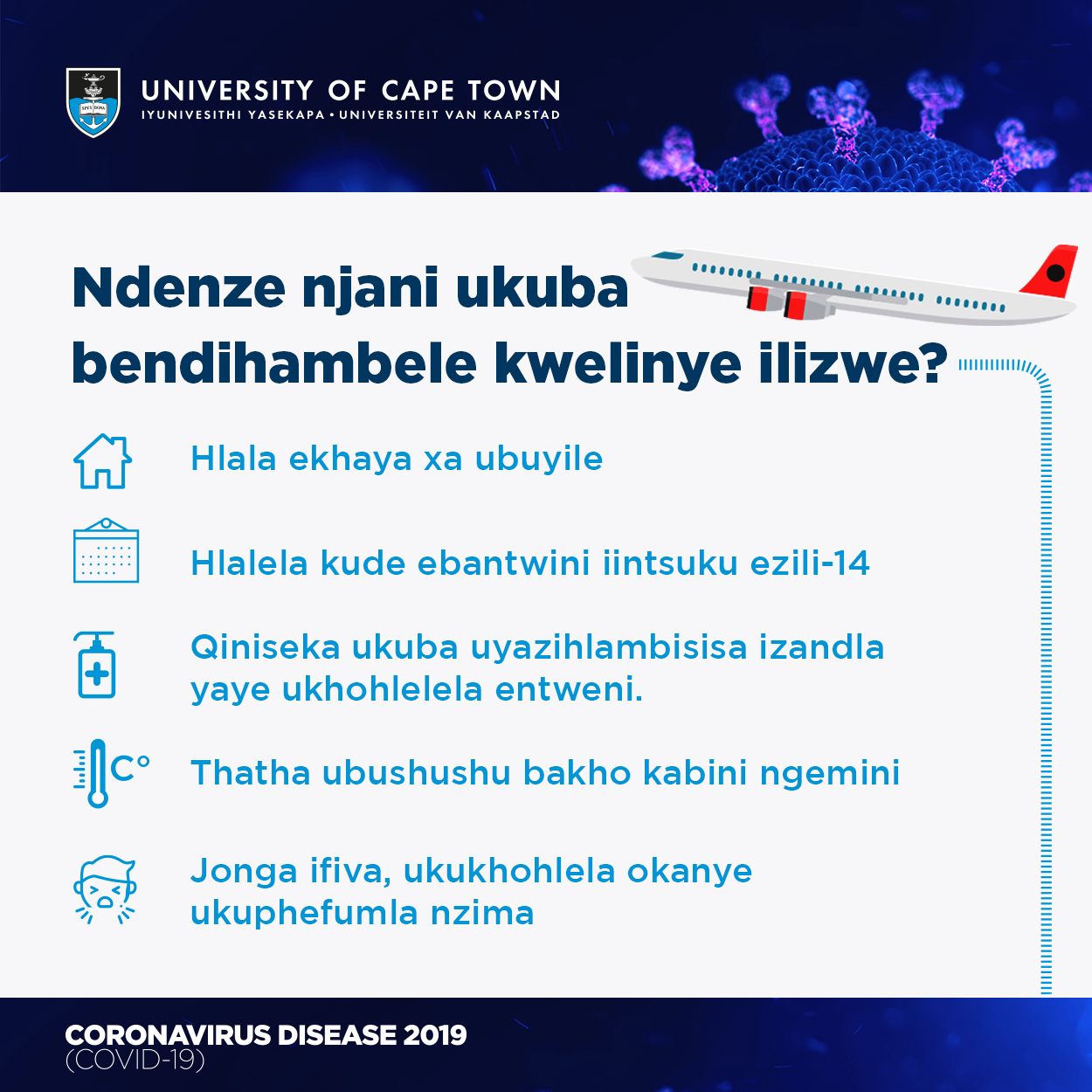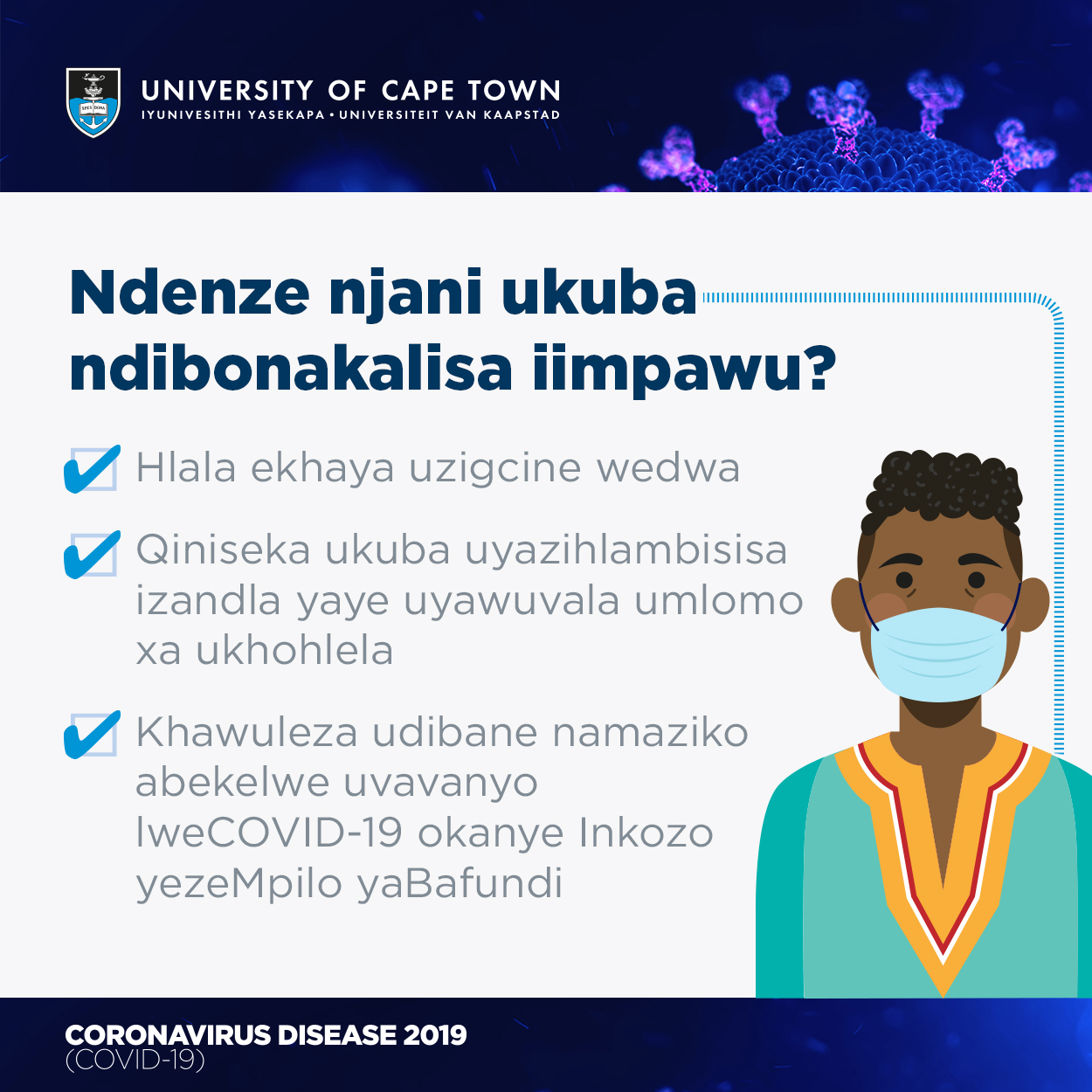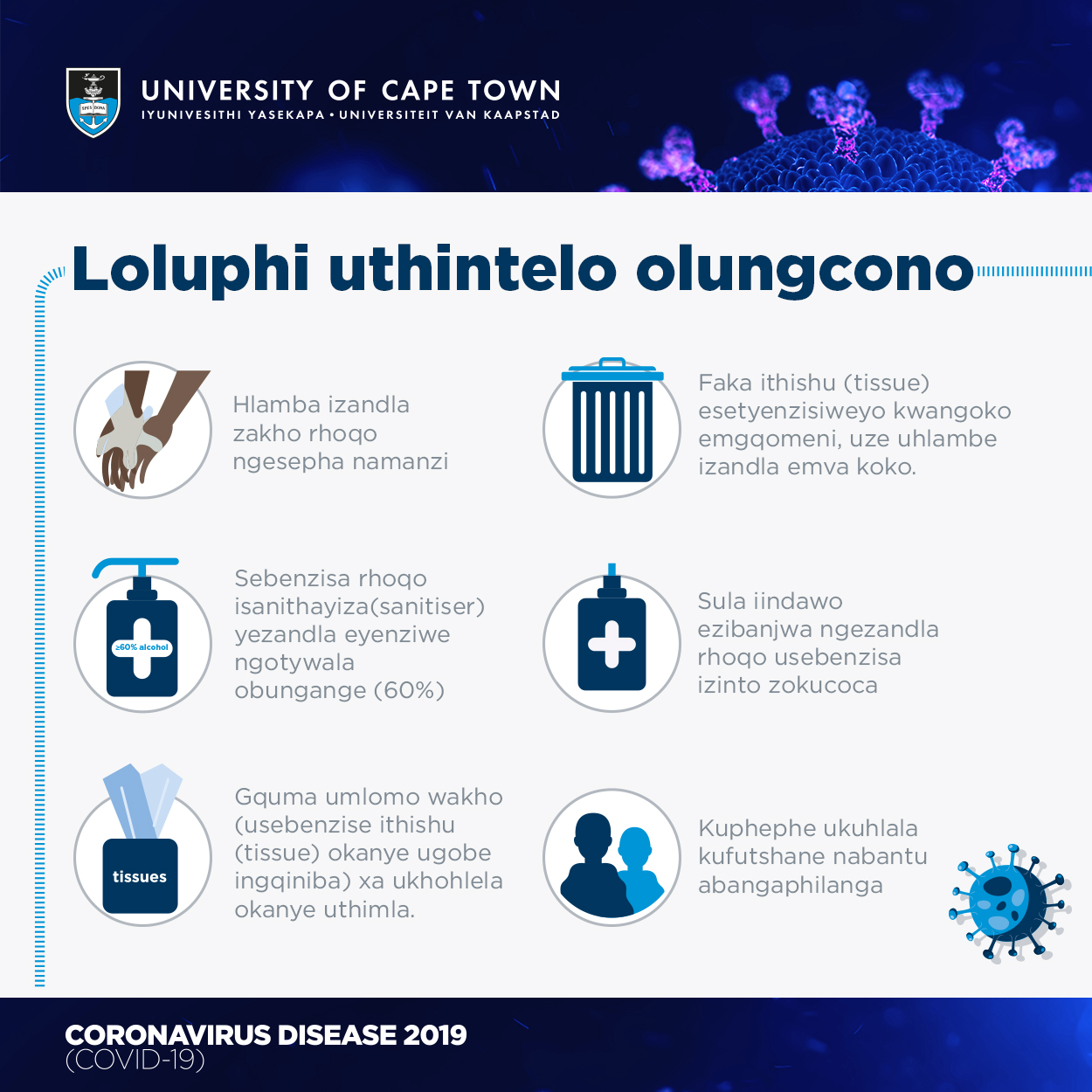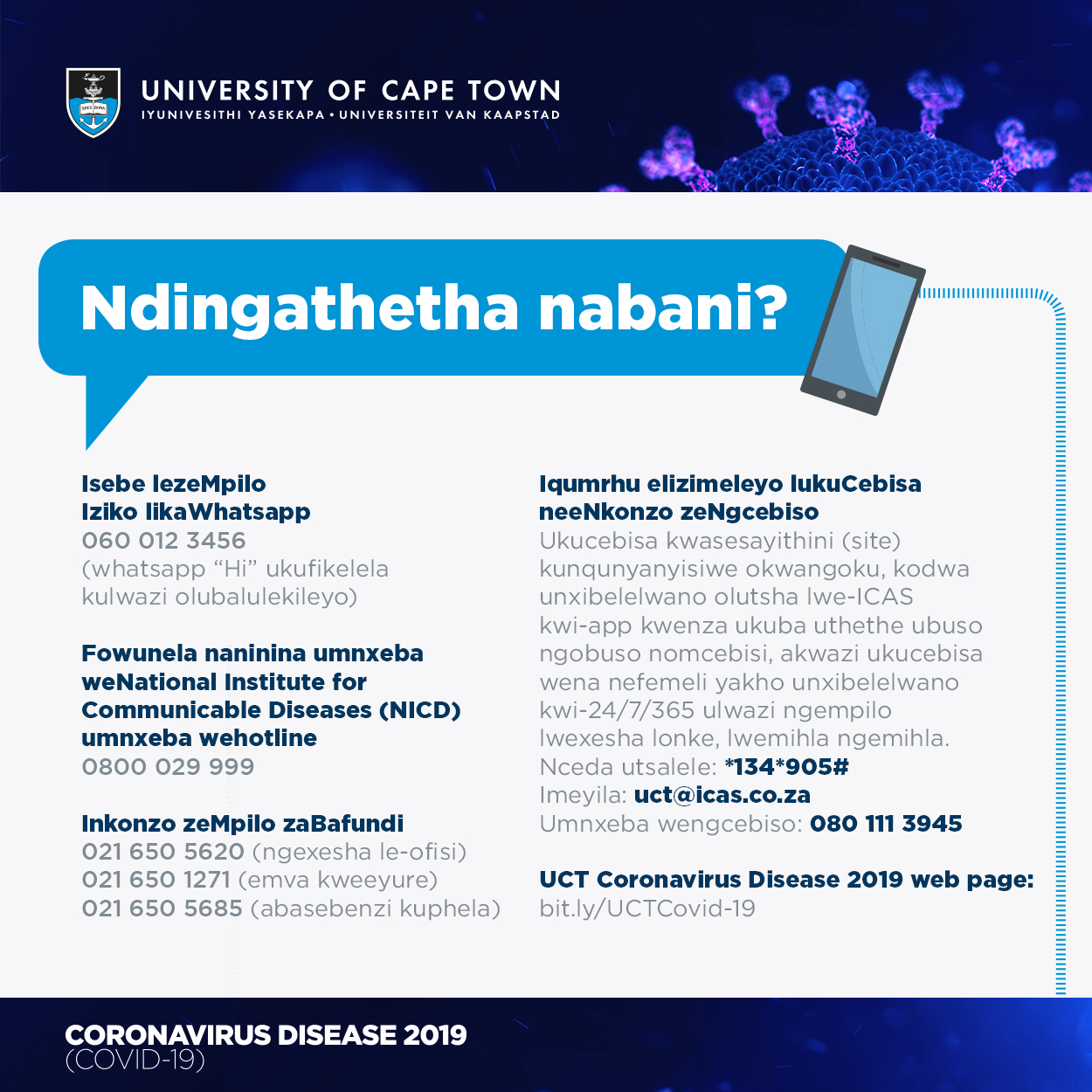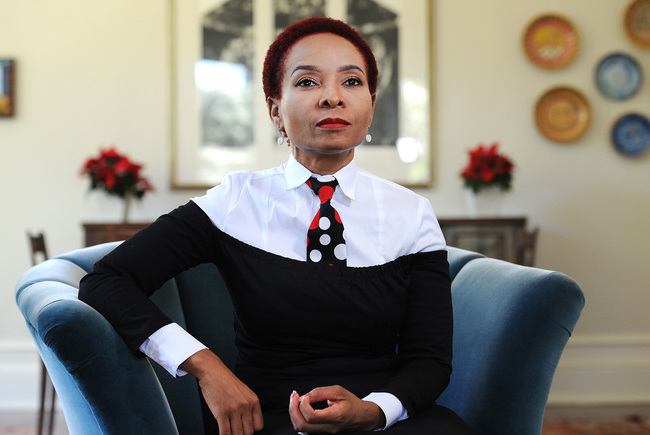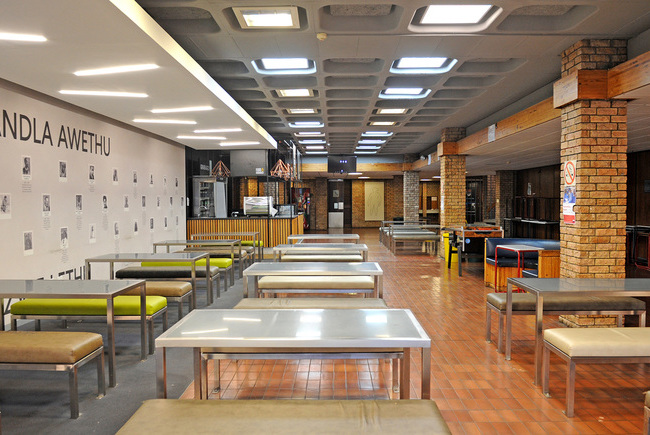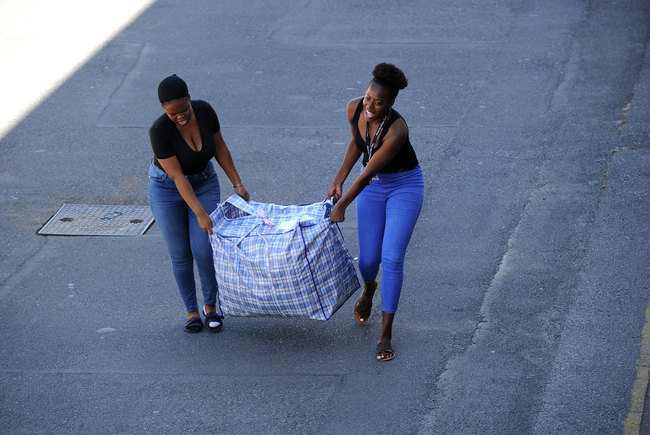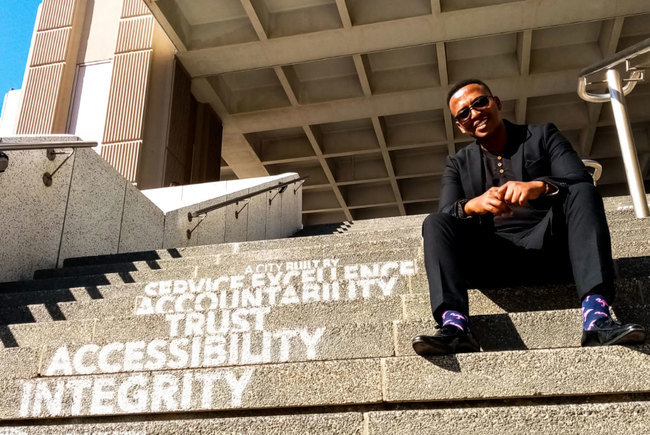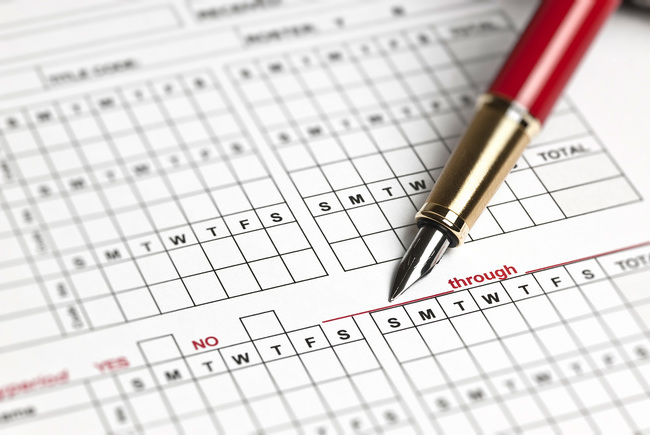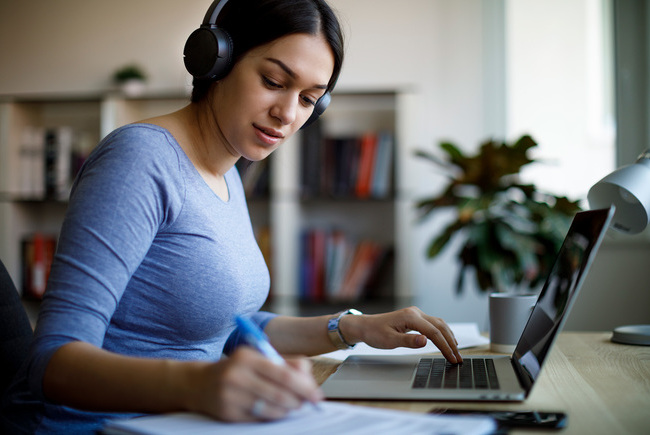Infographic: Coronavirus Disease 2019 (COVID-19)
20 March 2020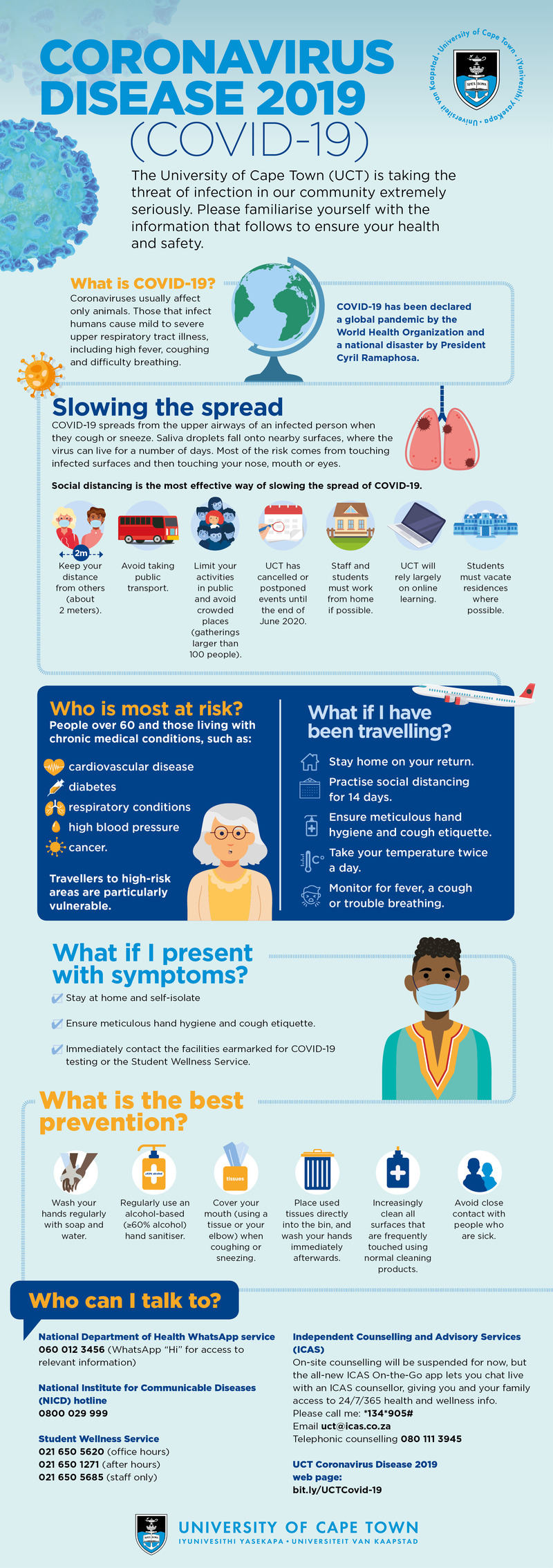
Download a hi-res version of this infographic.
Text only version
The University of Cape Town (UCT) is taking the threat of infection in out community extremely seriously. Please familiarise yourself with the information that follows to ensure your health and safety.
Coronaviruses are usually affect only animals. Those that infect humans cause mild to severe upper respiratory tract illness, including high fever, coughing and difficulty breathing.
COVID-19 has been declared a global pandemic by the World Health Organisation and a national disaster by President Cyril Ramaphosa.
COVID-19 spreads from the upper airways of an infected person when they cough or sneeze. Saliva droplets fall onto nearby surfaces, where the virus can live for a number of days. Most of the risk comes from touching infected surfaces and then touching your nose, mouth or eyes.
Social distancing is the most effective way of slowing the spread of COVID-19.
- Keep your distance from others (about 2 metres).
- Avoid taking public transport.
- Limit your activites in public and avoid crowded places (gatherings larger than 100 people).
- UCT has cancelled or postponed events until the end of June 2020.
- Staff and students must work from home if possible.
- UCT will rely largely on online learning.
- Students must vacate residences where possible.
People over 60 and those living with chronic medical conditions, such as:
- cardiovascular disease
- diabetes
- respiratory conditions
- high blood pressure
- cancer.
Travellers to high-risk areas are particularly vulnerable
- Stay home on your return.
- Practice social distancing for 14 days.
- Ensure meticulous hand hygiene and cough etiquette.
- Take your temperature twice a day.
- Monitor for fever, a cough or trouble breathing.
- Stay at home and self-isolate.
- Ensure meticulous hand hygiene and cough etiquette.
- Immediately contact the facilities earmarked for COVID-19 testing or the Student Wellness Service.
- Wash you hands regularly with soap and water.
- Regularly use an alcohol-based (≥ 60% alcohol hand-sanitiser).
- Cover your mouth (using a tissue or your elbow) when coughing or sneezing.
- Place used tissues directly into the bin, and wash your hands immediately afterwards.
- Increasingly clean all surfaces that are frequently touched using normal cleaning products,
- Avoid close contact with people who are sick.
National Department of Health WhatsApp service
060 012 3456 (WhatsApp "Hi" for access to relevant information)
National Institute for Communicable Diseases (NCID) hotline
0800 029 999
Student Wellness Service
021 650 5620 (office hours)
021 650 1271 (after hours)
021 650 5685 (staff only)
Independent Counselling and Advisory Services (ICAS)
On-site counselling will be suspended for now, but the all-new ICAS On-the-Go app lets you chat live with an ICAS counsellor, giving you and your family access to 24/7/365 health and wellness info.
Please call me: *134*905#
Email: uct@icas.co.za
Telephonic counselling: 080 111 3945
Get ICAS On-the-Go
 This work is licensed under a Creative Commons Attribution-NoDerivatives 4.0 International License.
This work is licensed under a Creative Commons Attribution-NoDerivatives 4.0 International License.
Please view the republishing articles page for more information.
UCT’s response to COVID-19 in 2021
COVID-19 is a global pandemic that caused President Cyril Ramaphosa to declare a national disaster in South Africa on 15 March 2020 and to implement a national lockdown from 26 March 2020.
UCT is taking the threat of infection in our university community extremely seriously, and this page will be updated regularly with the latest COVID-19 information. Please note that the information on this page is subject to change depending on current lockdown regulations.
Commemorating a year of COVID-19
At midnight on 26 March 2020, South African went into the first nationwide hard lockdown. A year later, we remember those who have died and those who have been affected by COVID-19, as well as the pandemic’s effects across society and campus. We are especially grateful for the front-line health workers who have done so much for so many.
Frequently asked questions
In an email to the UCT community, Vice-Chancellor Professor Mamokgethi Phakeng said:
“COVID-19, caused by the virus SARS-CoV-2, is a rapidly changing epidemic. [...] Information [...] will be updated as and when new information becomes available.”
We are continuing to monitor the situation and we will be updating the UCT community regularly – as and when there are further updates. If you are concerned or need more information, students can contact the Student Wellness Service on 021 650 5620 or 021 650 1271 (after hours), while staff can contact 021 650 5685.
